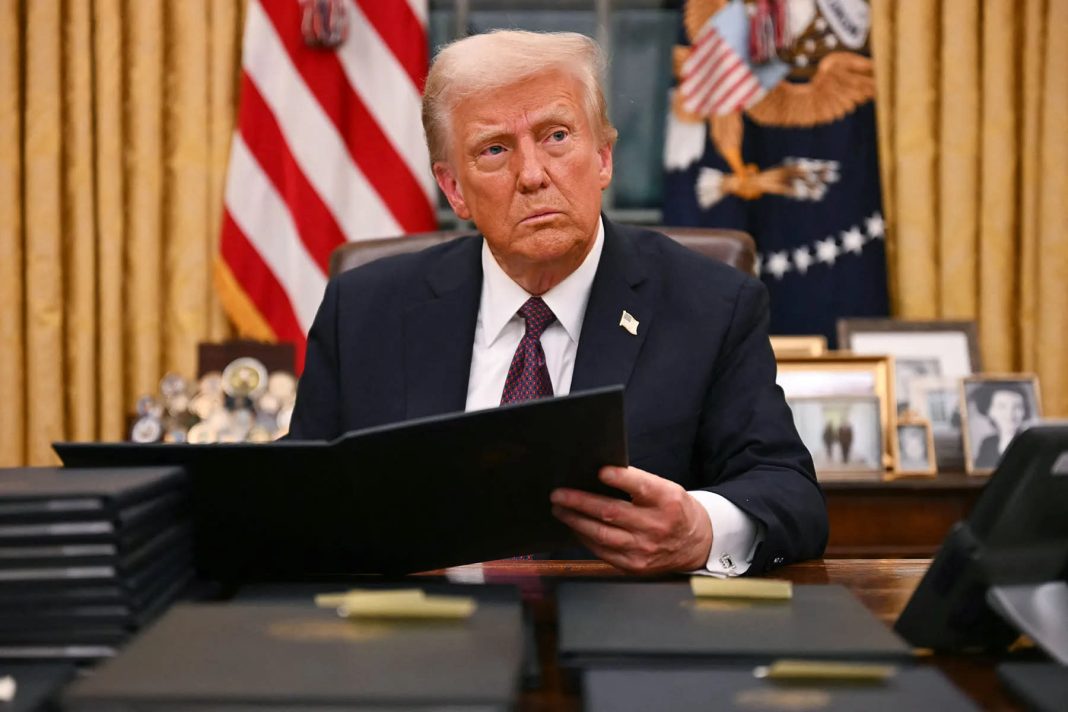WASHINGTON D.C, USA – United States President Donald Trump has brushed off the turmoil caused by his sweeping tariffs, calling the measures “medicine” for the U.S. economy, despite the massive sell-off in global stocks and concerns about a potential trade war.
Trump’s comments came on Sunday, April 6, 2025, as panicked investors watched global stock markets plummet, with major indices in Asia, Europe, and the U.S. experiencing steep losses.
Speaking aboard Air Force One, Trump compared the market volatility to taking medicine, stating, “I don’t want anything to go down but, sometimes, you have to take medicine to fix something.”
Trump has made it clear that he will not back down on his “reciprocal tariffs” unless other countries balance their trade with the U.S.
He noted that he had spoken to many foreign leaders over the weekend who were “dying to make a deal,” but reiterated his stance that trade deficits with the U.S. would no longer be tolerated.
The announcement of the tariffs, which have sent shockwaves through financial markets, imposed a 10 percent tariff on imports starting Sunday, with higher duties set to affect dozens of countries.
These higher tariffs, ranging from 11 percent to 50 percent, are scheduled to take effect on Wednesday, targeting U.S. rivals and allies alike.
Notably, China, the U.S.’s main strategic rival, faces a 34 percent tariff, while other major economies, including the European Union, Japan, and South Korea, will experience tariffs between 20 percent and 25 percent.
In response, global stock markets have been in turmoil.
Hong Kong’s Hang Seng Index dropped over 13 percent, its steepest decline in nearly three decades.
Other Asian markets, including Taiwan and Japan, also saw significant losses.
European markets followed suit, with the FTSE 100 in London and the DAX in Frankfurt falling 5 percent and 7 percent, respectively.
U.S. futures were also down, suggesting further steep losses when Wall Street reopens.
In retaliation to the tariffs, China has already announced countermeasures, including a 34 percent tariff on all U.S. imports and restrictions on critical mineral exports.
The European Union is preparing a list of U.S. imports to target with higher duties.
Trump, however, expressed a willingness to negotiate with China, but stressed that any deal would hinge on reducing the trade deficit with the U.S.
Israeli Prime Minister Netanyahu is set to meet Trump on Monday, April 7, 2025, marking the first face-to-face discussion between the two leaders since the tariffs were announced.
The Israeli leader is expected to raise concerns about the tariffs, along with other critical issues like hostages, Israel-Turkey relations, and the Iranian threat.
Despite the turmoil, Trump administration officials have downplayed fears of an impending recession.
Treasury Secretary Scott Bessent stated that a recession was not inevitable and that the administration’s focus was on building long-term economic prosperity.
However, analysts have raised concerns about the economic impact of the tariffs, with JPMorgan and S&P Global increasing the likelihood of a U.S. recession in the next 12 months.
JPMorgan’s Bruce Kasman warned that the disruptive impact of U.S. trade policies, if sustained, could push the global economy into recession.
Meanwhile, former Treasury Secretary Lawrence Summers criticized the tariffs as one of the most damaging economic policies enacted by the U.S. since World War II.







